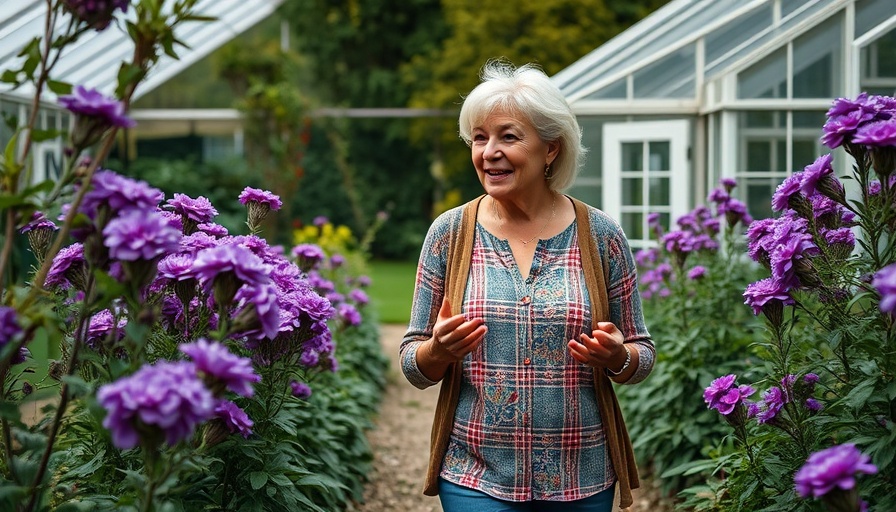
Discover Alluring Native Plants for Your Summer Garden
As summer unfolds in Zone 8B of Surrey, B.C., it's essential for garden enthusiasts to explore native plants that will truly shine during this vibrant season. In an area where biodiversity thrives, incorporating native blooms not only elevates your garden's aesthetic but also plays a crucial role in attracting pollinators. Imagine your garden swarming with the delightful flutters of butterflies and the busy buzz of bees, all thanks to the right plant choices. Let's delve into some standout plants perfect for July that can bring your garden to life.
The Importance of Choosing Native Plants
Native plants are well-adapted to our local climate and soil conditions, making them easier to grow and maintain. Besides their resilience, they support our ecosystem by providing food and habitat for local wildlife, particularly pollinators like bees and butterflies. Choosing native plants isn't just beneficial for you; it's a way to contribute positively to your local environment. By planting species that thrive naturally in your area, you can create a sustainable garden that enhances biodiversity and encourages pollination.
Top July-Blooming Plants to Attract Pollinators
Here are some beautiful native plants that are known to attract pollinators and flourish in Surrey's summer conditions:
- Bee Balm (Monarda spp.) - With its bright, tube-shaped flowers, bee balm is a favorite among bees, butterflies, and hummingbirds alike. This perennial plant thrives in sunny spots and adds a splash of color to your garden.
- Black-Eyed Susan (Rudbeckia hirta) - Known for its cheerful yellow petals and dark centers, this hardy flower not only adds visual appeal but also attracts a variety of insects, particularly pollinators in search of nectar.
- Lavender (Lavandula spp.) - A staple in many gardens, lavender not only appeals to the senses with its lovely fragrance but is also a magnet for bees and butterflies, making it a must-have for any eco-friendly garden.
- Wild Bergamot (Monarda fistulosa) - Similar to bee balm, wild bergamot offers beautiful purple blooms that are irresistible to hummingbirds and bees. Its pleasant aroma also adds to the charm of summer gardens.
- Indian Paintbrush (Castilleja spp.) - With eye-catching red blooms, this plant captures attention and serves as a fantastic nectar source for pollinators.
Creating a Pollinator-Friendly Environment
When planning your garden, consider the overall habitat you’re creating for pollinators. Grouping plants together can facilitate easier foraging and nesting for bees and butterflies. Moreover, aim for a variety of bloom times to ensure that pollinators have access to food from spring through fall. Ensuring that your garden includes a mix of nectar and pollen-rich plants will provide these essential creatures with a reliable food source.
Call to Action: Join Your Local Gardening Community
If you’re interested in enriching your garden with these native plants, consider joining local gardening clubs or community events in Vancouver. Connecting with fellow gardening enthusiasts not only provides valuable tips but fosters community bonds as we all strive to make our gardens more inviting to wildlife and each other. This collective effort contributes significantly to environmental sustainability and enhances local biodiversity.
As you gear up for your summer garden, remember to embrace the beauty of native flora. By choosing to plant these fantastic, pollinator-attracting varieties, you’re not just beautifying your space, but also nurturing the environment. Happy gardening!
 Add Row
Add Row  Add
Add 




Write A Comment